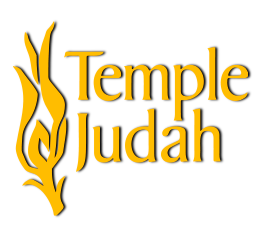Shalom All,
During our weekly Torah portions this month, we will, once again, read the stories of our ancestors; Abraham, Isaac, and Jacob. In one particular portion, Parshat Vayera, we will read about three people, three strangers, who happen to be passing by Abraham and Sarah’s tent in the wilderness of Canaan. The portion opens just as these three people, thought by many commentators to be angels, are drawing near the tent. Upon seeing them, Abraham runs out to great them and invites them into his home, shows them great hospitality, and they, in turn, reward Abraham with the information that Sarah will soon give birth to a son.
In many ways, the simple fact that Abraham invites these three strangers, into his tent for a bit of food and drink is a wonderful lesson about kindness and generosity. After all, they did live in the desert and who knows when any stranger passing by last ate or drank? But it isn’t just the invitation that’s important here. Even though it is written that “he was sitting at the entrance of his tent,” he did not merely call to them to come in; rather, so great was his enthusiasm to assist these three, that we are told, “he ran from the entrance of the tent to greet them.” Similarly, he did not just offer them standard fare; rather, he instructed Sarah to make cakes from “choice flour” and he slaughtered a “tender and choice” calf especially for them. Lacking all suspicion or thoughts of selfishness, he honors these strangers with his outpouring of generosity. Thinking they are mere mortals, he treats them like angels, and it is for this that his actions are so remarkable.
Interestingly enough, in the very same Torah portion, immediately following this meeting and the “angels'” prophecy that he and Sarah will have a son by this time next year, Abraham is informed by God that the cities of Sodom and Gomorrah are to be destroyed due to their wickedness. Abraham, not wanting to believe that the all the people of these cities are as wicked as God declares, stands up to God and bargains for the lives of the people of these doomed cities. Once again, Abraham shows a generosity of spirit and an inherent belief in the goodness of humanity. He knows nothing, really, of the people of Sodom and Gomorrah, beyond the fact that his nephew, Lot, lives there with his family. Yet Abraham is fully prepared to argue on their behalf. And he nearly succeeds in saving them all.
Abraham is a complex character, with both positive and negative traits. In Parshat Vayera, however, he demonstrates a compassion that is especially positive and poignant today. Abraham demonstrates the ability to assume the good in people and to show generosity towards them. He refuses to believe that an entire community can be wicked and is willing to even fight against God for that belief. He reminds us to be generous and kind, first, and to believe others are generous and kind too, even if it is God trying to tell us otherwise.
Perhaps, if we too learn to first assume the best intentions in others we might just find angels in our midst too.
Shana Tova U’metukah,
May you have a good and sweet new year.
Rabbi Todd

